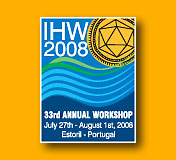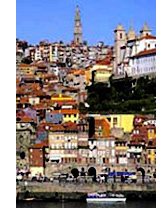 |
 |
||
|
ACCOMMODATIONS/TRAVEL – Portugal General Information
The Portuguese have a close affinity to the sea; for centuries their famed mariners led the way in the exploration of Africa and the Americas, and opened trade routes to the East. The country became a strong colonial power, and remained so until the mid-20th century, resulting in distinctive foreign influences on the local culture and architecture. From Africa, for example, was imported the now traditional, sentimental fado music, which is one of the country’s unique experiences for visitors, particularly in the cafés of Lisbon.
Time: Local time is GMT (GMT +1 from last Sunday in March to Saturday before last Sunday in October). Health: There are no health risks attached to travel to Portugal. A yellow fever vaccination certificate is necessary for entry for anyone travelling from an infected area and destined for the Azores or Madeira. Health facilities are good and reciprocal health agreements exist with most European countries, including the UK, whose citizens receive free emergency care at state hospitals. Dental care and repatriation costs are not covered under this agreement. Medical insurance is therefore advised. Tipping: Service charges are usually added to hotel and restaurant bills, but it is customary to leave an additional 10%. Bar staff and taxi drivers also expect tips, which are usually the rounding up of the bill to the nearest Euro. Communications: The international access code for Portugal is +351. There are no area or city codes required. The outgoing code is 00 followed by the relevant country code (e.g. 0044 for the United Kingdom). Portugal is well covered by three GSM mobile phone networks. Internet cafes are available in most towns and resorts. Passport and Visa Requirements
|
||
|
|
||
|
33rd Annual International Herpes Virus Workshop
July 27 - August 1, 2008 — Estoril, Portugal |
||
 Portugal shares the Iberian Peninsula with Spain, and is bordered by the Atlantic Ocean to the west and south. Its long, varied coastline, sunny climate, and the relaxed lifestyle of the inhabitants of its charming towns and villages have made it a sought after holiday destination. The delight of Portugal is that, although it is undeniably part of modern Europe, it retains some rural enclaves where time has stood still and traditions flourish. In the southern province of the Algarve, modern high-rise resorts line the coast and buzz with all the trappings of a package tour destination; the capital city, Lisbon, on the west coast, is a bright, busy, crowded metropolis surrounded by bustling tourist resorts. Travel a few miles north or east, however, and discover a largely undeveloped picturesque countryside full of medieval villages and towns where life has changed little over several centuries.
Portugal shares the Iberian Peninsula with Spain, and is bordered by the Atlantic Ocean to the west and south. Its long, varied coastline, sunny climate, and the relaxed lifestyle of the inhabitants of its charming towns and villages have made it a sought after holiday destination. The delight of Portugal is that, although it is undeniably part of modern Europe, it retains some rural enclaves where time has stood still and traditions flourish. In the southern province of the Algarve, modern high-rise resorts line the coast and buzz with all the trappings of a package tour destination; the capital city, Lisbon, on the west coast, is a bright, busy, crowded metropolis surrounded by bustling tourist resorts. Travel a few miles north or east, however, and discover a largely undeveloped picturesque countryside full of medieval villages and towns where life has changed little over several centuries.